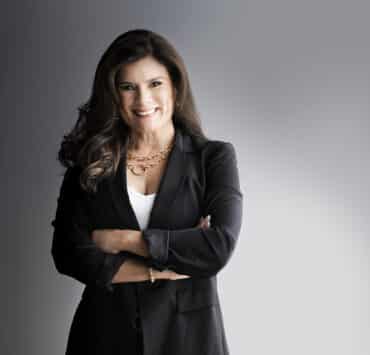|
Getting your Trinity Audio player ready...
|
Even as a kid, David Segura understood the magic of technology.
Growing up in the Detroit area, he thought he might have a career in sports—until he got to high school and suddenly found himself looking up at newly taller classmates. In search of other interests, he started hanging out in the computer lab of his Catholic school.
“I was learning how to code by then,” Segura remembers. “Then one day, [I heard] a nun say, ‘David. David.’ I look around me, and all the other students are gone. I look outside, and the whole parking lot is empty. School had been dismissed for more than an hour. I realized in that moment how energized I was by technology—by building and controlling data through a computer interface. I knew there was a big future ahead that would impact every business—including businesses not even yet thought of.”
For Segura, that future included founding the technology services company VisionIT in 1997. At the time, Segura was a few years out of school, having earned a bachelor’s in computer science at the University of Michigan. He had decided to volunteer and teach coding and technology to local students, and he sought a way to make an even bigger impact.
Segura soon realized that a tech company was the best way to help the Hispanic community, affording members of that community with job opportunities, internships, educational programs, and more. With this vision, VisionIT was born.
Early on, VisionIT focused on building transactional websites and web-based applications, catering to large corporations that were looking to connect with minority-owned businesses. And since this was all during the Internet boom, the company also helped many Hispanic-owned businesses build their first online presence.
I realized in that moment how energized I was by technology—by building and controlling data through a computer interface. I knew there was a big future ahead that would impact every business—including businesses not even yet thought of.”
David Segura
“We learned to ride specific tech trends and understand them—how to smartly invest in people and tool sets to give us a strategic advantage,” the CEO says of his company’s growth. “We’ve done everything from in-vehicle software in the automotive industry to rollouts of enterprise software for major corporations.” Over the past twenty-three years, VisionIT has expanded to over twenty US markets and become one of the largest Hispanic-owned businesses in the tech industry.
While Segura attributes much of that success to tangible action and precise tactics, he also says the company’s expansion relied on something more intangible—the “vision” part of the equation. When VisionIT first started, he told his team that his goal for the company was to eventually hire ten thousand employees. At that point, only five people worked there, with some of the developers operating out of a storage room that had been modified into a development area. “It was a big storage room, but it was still a storage room,” Segura jokes.
Segura landed on the admittedly audacious number of ten thousand after reading Jim Collins and Jerry Porras’s influential corporate strategy book Built to Last: Successful Habits of Visionary Companies.
“The book was about companies that stood the test of time one hundred years into their existence,” Segura says. “Those companies had certain principles and a clear vision that they defined very early on in their journeys. For me, that big, audacious goal was having ten thousand employees. I think that number shocked everyone. But it also got everyone around me to say, ‘Ah, David is thinking a lot bigger.’ After that, we coined the acronym FAST (focused, agile, streamlined, talented) as a philosophy for the company that would help us begin scaling.”
VisionIT was close to reaching its goal number of employees hired when it caught the eye of Softtek, the largest IT outsourcing provider based in Latin America.
“We grew out of that small-business stage and had scaled to a mid-market company,” Segura recalls. “But we were getting more and more customers who were asking for a global-enterprise scale that we simply didn’t have. I remember hosting visits at our headquarters for major Fortune 500 companies. They would say, ‘We love you guys. What you’re doing is great, but the next piece of work we have requires 24/7 operations. And why aren’t you in Asia? Where are you in Europe?’ I would tell them that we were in Mexico and all across the US, but they needed that next level of scale. That’s where Softtek comes in. They have that global footprint with fifteen thousand employees.”
Today, VisionIT has increased its scale and capability through offshore and nearshore operations, leveraging Softtek’s global delivery centers. But although Segura has come a long way, his mission largely remains the same. In addition to his work with VisionIT, he sits on the Alumni Association Board at his alma mater, where he’s working to increase the number of minority students through scholarship programs. He was also a founder of Hispanic Executive IT Council (HITEC) along with several other leaders in his industry, which today is chaired by the former CIO of Cisco, Guillermo Diaz. To Segura, this was a way to expand the number of Latinos serving in executive positions within the tech industry.
“You can see how all of my work over the years ties together,” Segura says. “It’s about tech, the Latino community, education—especially at the university level—professional organizations, and investing in and seeding the next high-growth companies.”
Through this work, Segura’s hope is to have created more pathways for the next generation of CEOs to realize their visions.

